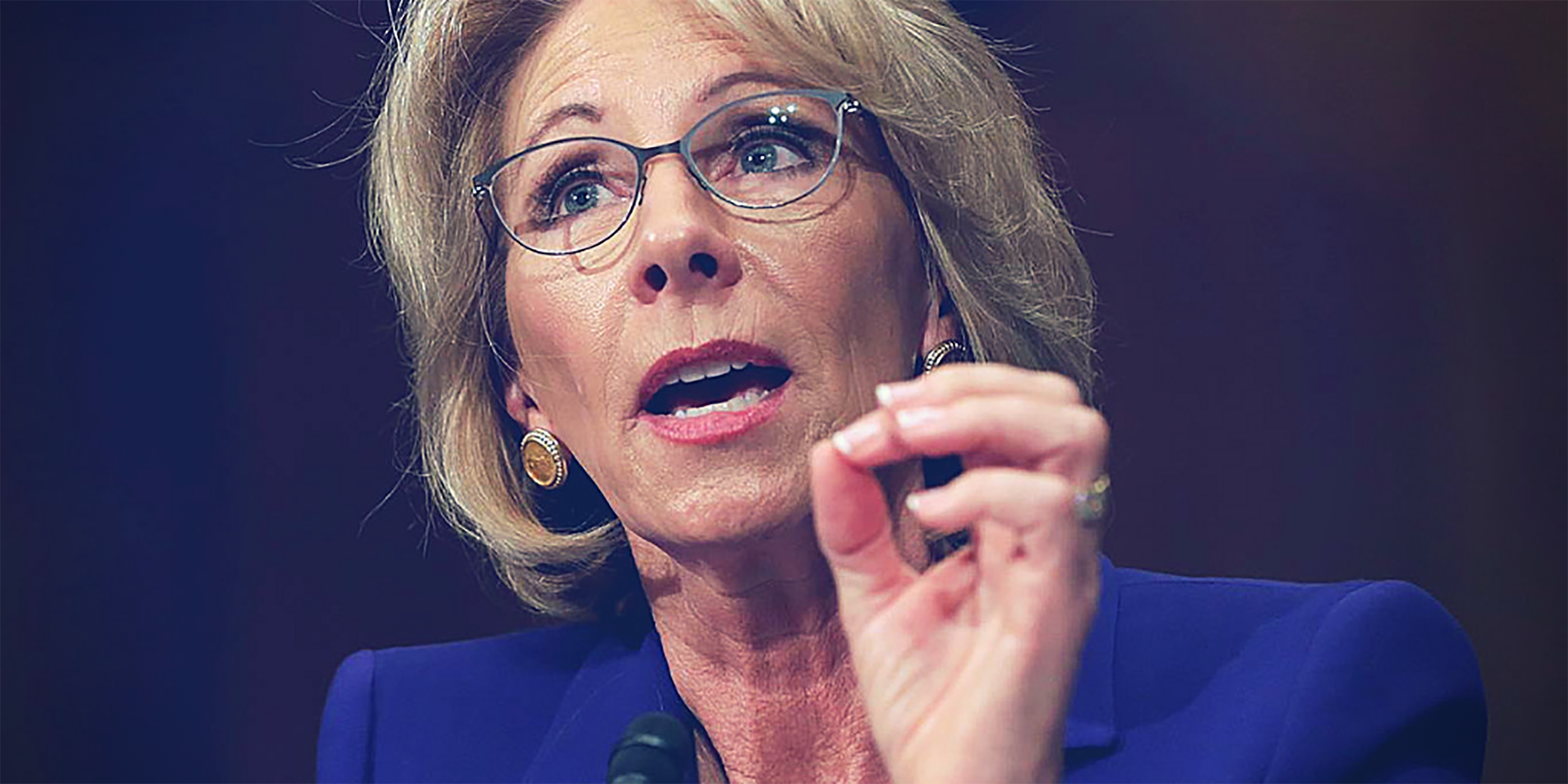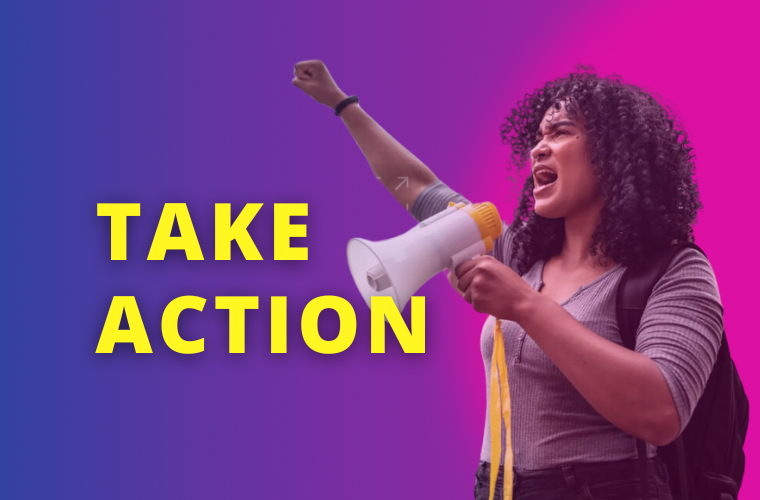When Betsy DeVos and the Department of Education rolled back Obama-era Title IX “Dear Colleague letter” guidelines last February, it was a direct attack on the civil rights of students across the country.
Not only did the rollback create barriers to healing and justice for students who survive sexual violence, but in clarifying their new Title IX “guidelines,” DeVos’s team seized the opportunity to tell LGBTQI students that the federal government no longer has their backs.
Of all the students whose safety and well-being is now threatened by Title IX rollbacks, trans and GNC students are likely at greatest risk. The policy changes attack the rights of these students on two fronts: (1) They create the possibility for states or schools to implement practices that openly discriminate against trans and GNC students based on gender identity, and (2) they put a population that already faces exponentially high rates of sexual violence in even greater danger.
Transgender children are already at increased risk for violence, bullying, harassment and suicide. …Policies excluding transgender youth from facilities consistent with their gender identity have detrimental effects on their physical and mental health, safety and well-being.
Encouraging Gender-Identity Discrimination
Title IX, Title VI, and Title II were created to ensure all students in the U.S. have equal access to education. While it should go without saying, the Obama administration clarified that these protections extend to all students in government-funded schools. So to be in compliance with federal law, a school “must not treat a transgender student differently from the way it treats other students of the same gender identity” — until last February.
The Trump administration officially rescinded this common-sense guidance in favor of a discriminatory policy, saying “Title IX prohibits discrimination on the basis of sex, not gender identity.” While the rollback doesn’t change the law, it does give states and school districts more flexibility to interpret Title IX as an opportunity to mistreat students based on gender or gender identity, in direct opposition to the law’s original intent.
An example of this misinterpretation in action? In states without strong protections for trans kids, students from grade school through grad school could now potentially be barred from using the bathroom of their gender. According to the American Academy of Pediatrics, this type of ostracization has serious long-term consequences.
And if a school takes a passive reaction to ensuing bullying or ostracization, they create yet another barrier to that student’s right to equitable education. What’s worse: They could create a new risk to the student’s safety. Both outcomes are civil-rights violations of the type Title IX was created to prevent.
More Barriers After Sexual Violence
On top of these threats, trans and GNC students now also face greater barriers to justice and comprehensive care following an incident of sexual violence.
The trans community is subject to extremely high rates of sexual violence. 78% of GNC youth report significant abuse at school, and 86% of trans high school students say they’ve experienced sexual violence due to their gender identity, often perpetrated by other students.
These students who face such great risk can also encounter countless barriers to services and justice following an incident of sexual violence (i.e. being subject to harmful stereotypes; fear of being outed; financial barriers; barriers to competent, quality healthcare). Inevitably, these barriers ultimately contribute to some students dropping out — yet another threat to equitable education.
And with the Trump administration’s changes to Title IX, these obstacles become even more insurmountable if the sexual violence occured at school or at the hands of a classmate. Trans and GNC students, who deal with higher rates of disbelief following an assault, now have to present more evidence when trying to prove that the incident occurred — more evidence than is required of their assailant. (This new, incredibly burdensome standard applies to all student survivors of sexual violence). And so trans and GNC students, who are at greater risk of experiencing physical violence when interacting with police, may no longer be able to rely on Title IX as an alternative avenue to justice and healing if they want to avoid interacting with law enforcement.
Ultimately, DeVos’s Title IX rollback is an attack on the rights of all student survivors of sexual assault who just want to feel safe in their schools and on their campuses. But for trans and GNC students, the attack has catastrophic consequences on many levels.
What Are We Doing About It?
ERA is suing Betsy DeVos and the U.S. Department of Education. In January, Equal Rights Advocates — along with Democracy Forward, Surv Justice and Victims Rights Law Center, National Center for Youth Law, and National Women’s Law Center — filed suit against DeVos and the Department of Education because their new Title IX policies discriminate against student survivors of sexual violence.
Our goal is to overturn the new policies and reinstate protections for students. In doing so, we also hope to restore civil rights for trans and GNC students, and return to a path toward equality rather than taking a road back to the dark ages.




